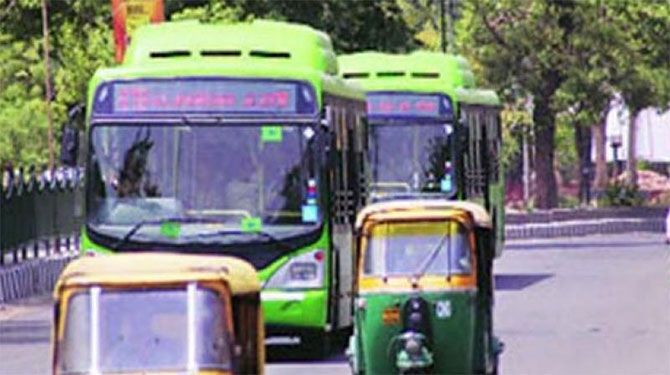No mention of cab aggregators in GST bills

Four Bills for the proposed goods and services tax (GST) regime, which were introduced in the Lok Sabha on Monday by Finance Minister Arun Jaitley, did not mention cab aggregators such as Ola and Uber, but experts say these may draw up to one per cent tax collected at source (TCS) under the definition of e-commerce marketplaces.
The exact nature of taxing these cab aggregators is likely to be detailed in the rules.
Also, buses, including minibuses and pick-up vans, carrying more than 10 individuals, will not be subject to an extra cess under the proposed regime.
The legislation has been introduced as money Bills, which will not require a nod from the Rajya Sabha, where the ruling coalition is in a minority.
Formally, then, the new indirect taxation system is set for a roll-out from July. However, industry and tax experts want a September 1 roll-out.
The Bills changed an earlier draft version to tax shopping vouchers given by companies at the time of receiving these. Now, the tax will be imposed at the time of redemption.
Also changed was a provision about a balance left in the compensation fund after five years. Now, the balance will be shared between the Centre and states; the draft had proposed to give it to the states.
There are provisions for arrests and fines in cases of tax evasion.
Opposition party members protested at the way the Bills - Central GST (CGST), Union Territory GST (UTGST), Integrated GST (IGST) and Compensation - were brought in. They said they’d not been given enough time to study the proposed legislation.
A debate on the Bills is set for Wednesday. A fifth Bill - state GST (SGST) - is required to be approved by the respective assemblies.
Alongside, the GST Council will take up for debate the proposed rules at a meeting on Friday. After this, a committee of officers will look at fitment of rates.
The Compensation Bill deals with a cap on the cess to be imposed over the peak rate of 28 per cent, to offset states for the revenue loss due to GST for the first five years of the roll-out.
It caps the cess at 15 per cent for luxury cars, station wagons and racing cars. As mentioned earlier, vehicles, which can carry more than 10 individuals, including the driver, will not attract the cess. M S Mani of consultancy Deloitte says these are basically buses, minibuses and pick-up vans.
Sugato Sen of the Society of Indian Automobile Manufacturers says while buses carry an excise duty of 12.5 per cent and value added tax (VAT) of 12.5 per cent in most states, vans carry an excise duty of around 24 per cent and VAT of 12.5 per cent.
And, the concept of cab aggregators has been removed from the final Bill.
“The need was not felt, considering there are only two companies in the cab space - Uber and Ola. We will deal with them in the rules,” said a finance ministry official. Saloni Roy of Deloitte, however, says aggregators should fall within e-commerce operator definition itself.
The Bill proposes up to one per cent TCS for these e-commerce marketplaces.
In the case of shopping vouchers, the GST will not be imposed at the time of receiving these but at the time of purchasing items against these vouchers. Shopping vouchers were classified as a service in the earlier draft but has been taken off that category. The tax will need to be paid at the time of the purchase against the voucher.
“Actionable claims will not be treated as goods or services, which would mean that sale of multipurpose vouchers would be taxed at the time of redemption and not upon issuance,” says Pratik Jain of PwC. Jain said the government should consider September 1 as the roll-out date.
The Centre will have a greater share of the residual amount in the compensation fund at the end of the five-year period agreed after GST takes effect.
The Compensation Bill now provides for equal sharing of the amount, against the earlier formula which favoured states. States will receive provisional compensation bi-monthly from the Centre for loss of revenue from implementation. The draft law had provided for payment every quarter.
The law also provides for arrest, ordered by no less than a tax commissioner, in suppression of any transaction or evading taxes. A person convicted is punishable by up to five years of imprisonment and/or fine.
On the manner the Bills were brought in, Congress member K C Venugopal said their introduction was not listed in the day’s agenda. Parliamentary procedure had to be followed in important issues.
Parliamentary Affairs Minister S S Ahluwalia said the Bills were uploaded on the government website at midnight of Friday. To which, Opposition MPs took strong objection, demanding to know how the government expected members to check the website at midnight.
Why they demanded was the issue not discussed at last week’s meet of the Business Advisory Committee.
Congress leader Mallikarjun Kharge, Majlis-e-Ittehadul Muslimeen leader Asaduddin Owaisi and the Trinamool Congress’ Saugata Roy were among those who objected to the Bills’ introduction.







 © 2025
© 2025